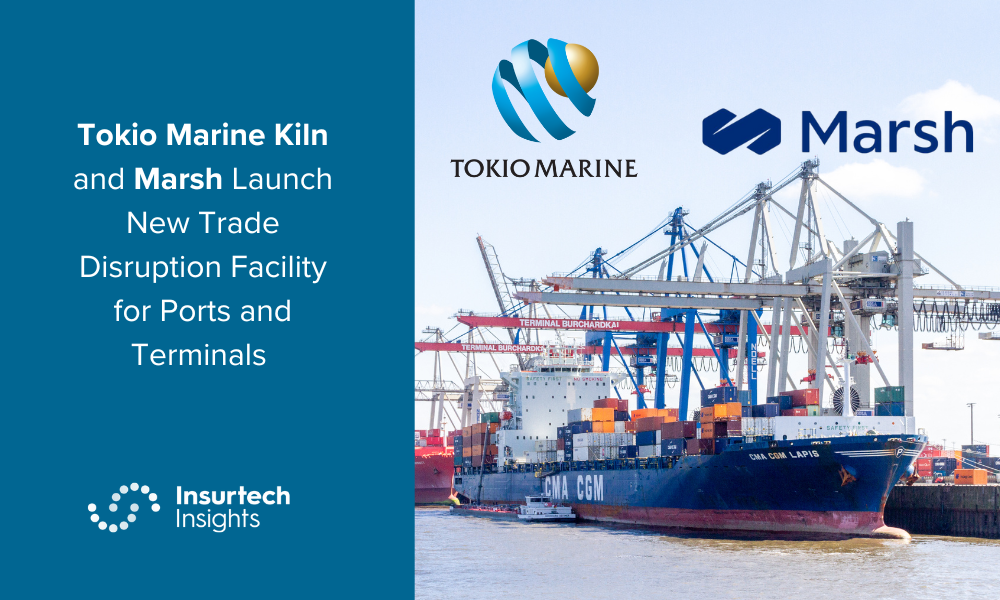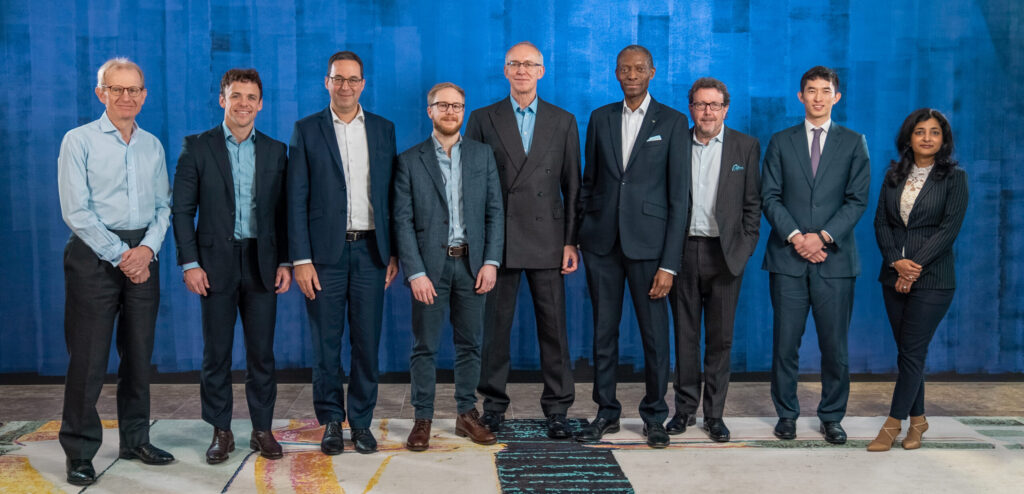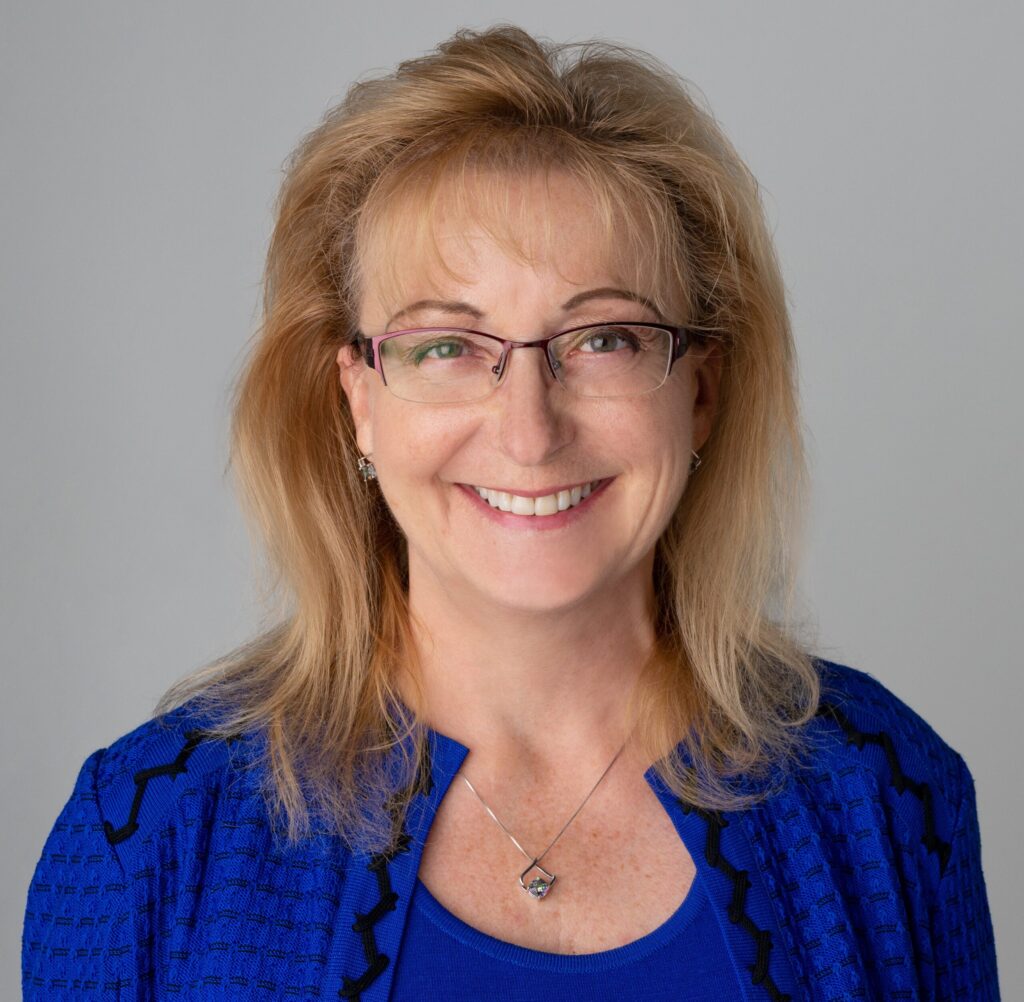Peggy Klingel enjoys a challenge, and the often complex-to-navigate space between legacy systems and insurtech innovation, has been her career home for the past few years. Her most recent project was a six-year implementation at Allstate Insurance, which involved building a startup engagement programme and working with insurtechs to streamline the technology.
Attention to detail and knowing the numbers has been key for Klingel, who started out as a trained accountant and then moved into sales – but found it somewhat soulless. She has now discovered her happy place in the insurance industry, and is passionate about the cause because, “it is full of great people with an important mission to help others in a time of need.”

In an age that increasingly demands more from technology and people, she sits at the intersection that navigates both sides of the coin.
Tell us about your evolving career – and how you became involved with the insurance industry. If there’s a story there, please share it.
Like most people, I didn’t plan to join the industry. I started my career in public accounting and got my CPA certificate before moving into corporate accounting. After a few years I moved into a sales role at the suggestion of a Sales Vice President. I was afraid of carrying a quota but liked the challenge in figuring out this new role with the promise of commissions.
I soon realised sales wasn’t magic. Like most roles, it was about learning and following a process. Accounting and sales have been great foundations for me. I have held sales and business development roles across diverse industries. I have helped startups build sales teams, accelerated innovation, and led sales and operations team turnarounds within larger companies.
My first role in insurance was at American Family Insurance where I worked in their brokerage department to help update and grow the business. We brought in new partners and technology to accelerate quoting and expanded relationships with existing partners to improve agent support. Agents got quotes faster, customers weren’t waiting weeks for prices and sales increased.
After the experience at American Family, I was hooked on the industry. It is full of great people with an important mission to help others in a time of need. We struggle with legacy technology and processes that surrounded the tech for decades. There is so much opportunity to have a meaningful impact for employees, agents, and customers.
What have you been up to since 2020 and the pandemic?
My latest role was at Allstate Insurance. I joined the claims innovation team to build a startup engagement program. They wanted to work with insurtechs, build a partner pipeline, and simplify new technology evaluation and testing.
That was six years ago when insurtechs were relatively new. I needed to expand awareness of the insurtech ecosystem and what was possible working with partners. I focused on engaging accelerators and had employees mentoring startups to learn about startup culture. I also had thought leaders sharing trends to expand thinking of what’s possible.
Our first test contract took five months. Clearly that’s not fast enough. Over several years I worked with legal, privacy, security, procurement, architecture, and other areas to understand the process and shrink that to five weeks and expanded the function across the enterprise.
It had been a serial process before and would get hung up at multiple points along the way. We didn’t skip steps but learned how to move multiple steps forward at once in a parallel process. Legal also developed a shortened test contract that was easier for startups to review.
Many teams have become self-sufficient in structuring tests and onboarding partners. That was a huge win for the company and accelerated our ability to evaluate new technology.
What are the biggest challenges facing your particular area of expertise at this moment in time, and why?
I accelerate change within larger organisations and have built sales strategies and teams. Growing revenue doesn’t really go out of style, regardless of the economic situation, although transformation and innovation may slow when expenses are tight.
The recent economic challenges have impacted the industry’s ability to invest in new technology. The priority is getting the benefit out of transformation and technology investments that were already in progress before starting new initiatives.
Companies still looking at new capabilities are now more focused on increasing revenue and finding cost efficiencies. This isn’t a bad development. The emphasis is on accelerating the transformation that began prior to and during the pandemic.
Startups continue to focus on closing new customers, retention, and growth. After the tech layoffs started, founders also slowed hiring and conserved cash. They, too, are trying to do more with the teams in place, delay new hires and find ways to create more revenue from existing customers as new business sales cycles lengthen.
What strategies have you found most useful in terms of addressing those challenges?
Founders that know fiscal management will be in better shape. The discussions, frankly, are refreshing. As a former accountant, I have always been focused on how a business is going to grow and eventually become profitable. A few years ago, founders had more freedom to spend as capital was easier to acquire. That has changed.
As it relates to carriers and other large enterprises, accelerating transformation projects will help lay the foundation needed to move quickly as innovation funding re-emerges.
Internal teams and their partners are much more focused on outcomes. New projects have a higher level of scrutiny. Technology tests are tied to meaningful business goals and metrics are gathered to validate the technology will produce the expected results.

We hear a lot about diversity and how industries need to up their game in terms of representation. As a prominent female leader who has forged a very successful career in insurance, what’s your take on this?
There are now more resources available to help women manage their careers but that requires we know what we want. I think we’ve all been in conversations where someone isn’t happy in their role but hasn’t done the work to figure out what they want to do next.
Sheryl Sandberg’s book, Lean In, was published ten years ago. It resonated with a lot of women. It feels like it’s been around longer. Most companies have mentor programs and employee groups focused on career development.
We can’t wait for someone else to offer a new role or challenge. We have to figure out what we want and put a plan in place to go after it. I think over the years women have gotten much better at helping each other navigate their careers, from early stages through multiple roles and companies.
At Allstate, I led a personal branding and career development circle for several years. We created brand statements and helped members pursue new jobs. Multiple promotions and career moves occurred for circle members. When you can look at someone else’s success and know you had a small part to play in their promotion or new job, it feels good.
If you could give one piece of advice to your younger self about climbing the career ladder, what would it be and why?
I’d say have more fun along the way. I really enjoy the work I am doing now and have found that the biggest priorities for me centre on joining and building great teams. My best roles have given me the opportunity to make a meaningful difference for a business, their employees, and customers, whether that’s with a startup or accelerating innovation in a larger organisation.
My journey has also helped me build a good network that allows me to facilitate connections for people. I get a lot of joy out of developing others and making connections that help people achieve their goals.
Digital transformation is steaming ahead in the insurance industry. Which areas do you think still need a lot more work, and why?
I believe most of our innovation challenges are self-induced. We have made a lot of progress, but clearly have an opportunity to do more. The challenge is in execution.
First, we need to instil a sense of urgency in teams. Whatever area a business chooses to prioritise is fine if it aligns with business strategy and will provide meaningful results. It takes creativity to accelerate projects. Questions need to be asked in order to think about roadblocks differently.
Beyond that I’d suggest we take time to re-evaluate the projects we’re currently accelerating to be clear they are still the right priorities. It’s human nature to want to finish what we started. However, the environment is changing so rapidly, without a system in place to refresh priorities, we may find some transformations aren’t really transforming anything after all the work.
The technology exists to have a big impact on operations and the customer journey. If we get a fraction of the benefits, we’ll be in good shape. The question is, how big a fraction can we achieve?
Which three trends do you think will play the most important in transforming the insurance space over the next five years?
I believe AI is starting to produce tangible benefits. Democratisation of AI for companies that don’t have data science resources and increasing access to data will facilitate this. More tech companies are providing analytics with their platforms. This allows mid-tier carriers, for example, to use aerial imagery for underwriting and claims without needing data scientists on staff to analyse the data.
A second area I’m interested in is distribution. Embedded insurance, agency and broker technologies are reducing friction in the quoting and purchase experience. In this world responsible data ownership becomes increasingly important. We can’t automate underwriting or customise the customer’s journey without the data to predict what they need. This points to a future where we are better at meeting the customer where they want to meet us and how they want to engage.
Finally, I believe risk mitigation has a lot of potential. The industry hasn’t figured out the business case, but as we see increasing claim severity and occurrence, companies that help customers avoid the claim in the first place will be ahead. How we do that profitably is yet to be understood for most business segments.
What inspires you in insurtech today?
The founders and their teams. I’ve had an opportunity recently to get to know some of them much better as I’ve looked at new roles. I am impressed with their creativity and passion to solve some big challenges for humanity.
I think the industry is filled with people that want to make a difference and just need to know how they can transform. It doesn’t matter what company we are in. We are all on this journey together. We need to support each other as we serve our mutual customers.
Peggy Klingel will be joining us on the main stage at Insurtech Insights USA 2023 in New York on June 7th and 8th. She will be speaking as an expert panelist in the session, “Build/Buy/Partner”. Find out more about the conference here










